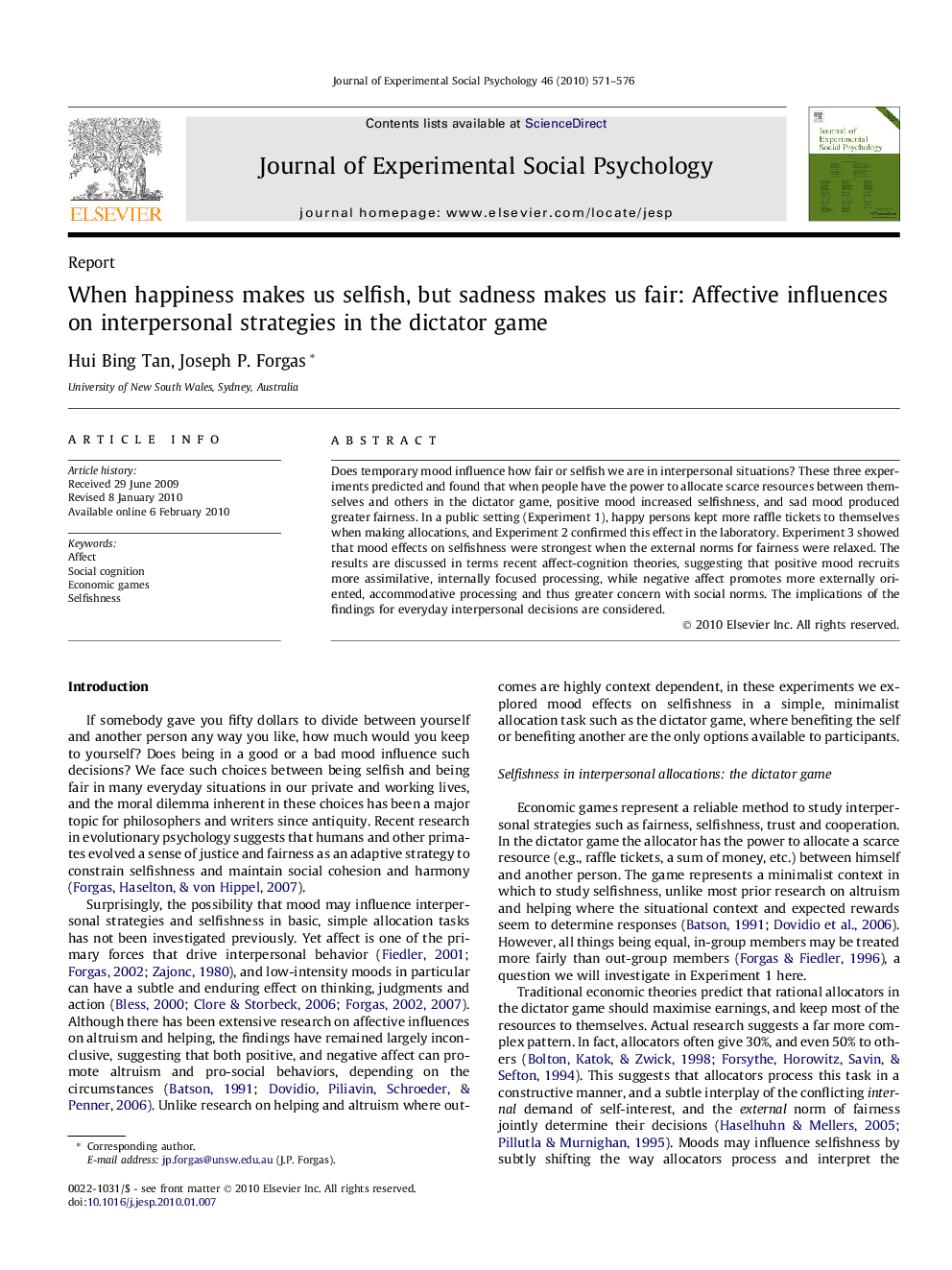| کد مقاله | کد نشریه | سال انتشار | مقاله انگلیسی | نسخه تمام متن |
|---|---|---|---|---|
| 948681 | 926478 | 2010 | 6 صفحه PDF | دانلود رایگان |

Does temporary mood influence how fair or selfish we are in interpersonal situations? These three experiments predicted and found that when people have the power to allocate scarce resources between themselves and others in the dictator game, positive mood increased selfishness, and sad mood produced greater fairness. In a public setting (Experiment 1), happy persons kept more raffle tickets to themselves when making allocations, and Experiment 2 confirmed this effect in the laboratory. Experiment 3 showed that mood effects on selfishness were strongest when the external norms for fairness were relaxed. The results are discussed in terms recent affect-cognition theories, suggesting that positive mood recruits more assimilative, internally focused processing, while negative affect promotes more externally oriented, accommodative processing and thus greater concern with social norms. The implications of the findings for everyday interpersonal decisions are considered.
Journal: Journal of Experimental Social Psychology - Volume 46, Issue 3, May 2010, Pages 571–576